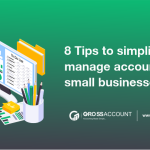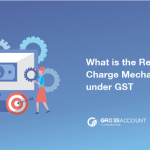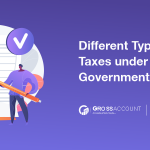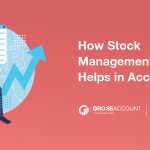Introduction
The future of Accounting Software in India is the combination of software solutions for accounting, financial forecasting, and management. We create robust software solutions that help companies keep abreast of their financial health and maximize profitability.
Our products and solutions are designed to leverage the most current trends in software technology. We strive to transform the way companies manage and operate their businesses by delivering intuitive, secure, and efficient solutions.
The future of accounting software in India is here with unique features to help accounting students and professionals in formulating financial reports on budget, tracking business process, secure data transfer, etc. It also provides an integrated search engine function to get the desired reports or datasets quickly from any department of the bank.
The future of accounting software helps users create customized reports using a browser-based interface. The overall user interface would be similar to the browser-based on any other business software applications available in the market or can be modified for academic purposes as per academic rules.
Accounting software is used extensively every day in organizations. However, the traditional software primarily deployed by organizations is cumbersome and complex – and may not be cost-effective when business growth is expected.
The country is going to witness a massive disruption in the industry of accounting software due to which the existing companies of accounting Software shall have a tough time in meeting their client’s ever-increasing requirements. There is high demand for accounting software and vendors are selling at low prices.
Current software solutions offered by vendors are not user-friendly and sometimes cannot be used by small companies. This article aims to discuss the key issues faced by companies and how we are trying to solve them.
Read more : Is online accounting good or bed for business ?
What is accounting software?
Accounting software is software designed to help bookkeepers, CPAs, and other financial record keepers fill out and handle records efficiently. There are many different types of accounting software available on the market but they all have one thing in common: they help bookkeepers and other financial record keepers create, update, and manage their financial records in a more efficient way.
Accounting software is the business software for the accounting profession which is used for one purpose: to virtually manage an organization’s financial records by allowing the professional to perform all the tasks required by running, monitoring, and charting activities on an ongoing basis.
Accounting software is used to track financial transactions of any entity whether it be a business or a barangay (the local government unit). Each firm or agency that engages in financial transactions traditionally uses accounting software.
In fact, traditional accounting software has been used by companies from all sectors since the early 20th century until the last decade when public compliance requirements started to insist on transitioning to an online or cloud-based platform.
Accounting software can simplify financial reporting and help you keep track of hundreds of accounting records, all done from a single dashboard. It’s a free, 100% open-source, distributed ledger system that offers a secure, online way of keeping track of financial information, transaction history, and budgets.
How is accounting software useful?
Accounting software plays a crucial role in any business. This software can be used for things like storing financial data, keeping track of expenses, creating reports and tables, and so on. Accounting software can be used to keep a business competitively profitable by providing the necessary data to allow businesses to determine if they need to implement any changes on their own or if they should continue along with their current business management tactics which may not yield the desired results.
Accounting software is used to help businesses manage accounting information accurately and efficiently. As accounting software improves, it becomes a primary source of business staffing management. A growing number of small businesses are now using this form of software when staffing their staff.
Accounts Receivable software is used by businesses for various reasons, including data entry, managing invoices, keeping a running total, creating expense reports, maintaining memory for financial statements, and many others.
Accounting software is useful whether you’re starting from scratch or are upgrading from an older software package. There are benefits to an accounting solution that can help streamline your workflow and aid in reporting, while others can help you grow your business, manage accounting data, automate repetitive tasks and make personal accounting easier.
Accounting software is commonly used by accounting professionals. And, in fact, it is among the most popular accounting courses updated each year. Whenever you work with any lien or account that requires payment by check or money order, you will need to utilize accounting software to satisfy your business needs.
Managing accounting information and other invoices and contract information on a monthly basis is a necessity in any business. Having an efficient system for handling your records along with adding new features can also improve your company’s revenue while lowering its operating costs. This is why accounting software has become quite valuable for entrepreneurs.
Top 10 trends & scope of accounting software
Accounting software is the next disruptive force to enter the accounting market. It’s designed to make businesses leverage more data, eliminate errors, and cut costs. And it could be just as disruptive to old-school accounting practices as the shift from manual to electronic filing influenced its previous counterpart.
The trend for accounting software is making growth and clear definition even more crucial than ever as the need for transparency and accuracy in today’s market takes off. With the number of accounting software providers increasing day by day, it becomes difficult to choose one. The market is also flooded with numerous products offering varying offerings and features.
The application of effective technology and accounting solutions in cloud-based platforms can give businesses a significant advantage over their competitors. This area is likely to witness a significant change in the coming year as software applications that integrate machine learning into the accounting process potentially become available.
The increasing demand and adoption of accounting systems is also a response to the growing need for high-quality, enterprise-level, or custom financial services. Accounting software gives smaller firms the confidence to step away from existing costs and journey into an unknown future with less risk.
Technology is continuously evolving at a lightning pace, providing us with new possibilities that old accounting software wasn’t initially equipped to handle. Accounting software has been a game-changer for small businesses. From growth hacking, to boost employee productivity, the ever-growing capabilities of these digital systems are revolutionizing the way we do business while reducing costs. In the coming years, accounting software will add new features to modernize systems and automate reporting.
Read More : why your business need complite GST billing software
Accounting software is quickly becoming a mainstream necessity. The growth of the Internet has made it easy for anyone to research products and services. Many accountants are now experts in studying courses and consulting with experienced firms. Regardless of the accounting software you choose, it is important to understand how to make an educated decision when considering other accounting tools.
Contrary to popular belief, usually, auditing isn’t just limited to running stress tests or creating reports. Auditing software can also help you create cost-benefit analyses and key performance indicators. And, it has the potential to be used for technical preparation, cost control, management quality assurance, financial reporting, operating system maintenance, privacy policies, payments & account reconciliations, and many more interesting tasks.
Accounting software technology is evolving rapidly and for better or worse it’s often at the forefront of any company’s financial strategy. From simple invoicing and filing to tax accounting, accounting software is evolving with small businesses and large businesses alike.And even accounting professionals need to keep up with all of the changes so they don’t fall behind and lose clients.
discusses ten emerging trends impacting the accounting software market: – Increasing mobile computing power: The processing power of customers’ phones has increased dramatically. 44% of small businesses own a smartphone with internet access today compared to just 19% in 2011. – Virtual desktops/VMS: Some small firms use VMS’s as if they were traditional paper books. – Online interfaces to support more efficient reporting: Online interfaces can make it easier for people to report on their own practices in ways they think are more effective.
Conclusion
For over 10 years, our team of developers has been implementing accounting solutions directly on the backend of leading accounting applications typically working in the top four accounting software providers in India. We are by no means an experienced service provider as we have only been doing this for a short period of time but it has been years since any other company has dared to touch the Indian accounting market leaving us as the only active player here. Future of Accounting Software in India The way we work and manage our finances are changing and accounting technology is on the rise. We covered it here in this blog.
On the other hand, accounting software solutions continue to improve at a rapid pace with innovative features, better user interfaces, and flexible integration with other systems. For the last few years, the accounting software industry has been growing strong and everyone has been looking towards new trends. We are seeing this trend no longer restricted to small accounting firms but also to bigger organizations like companies and government bodies.






